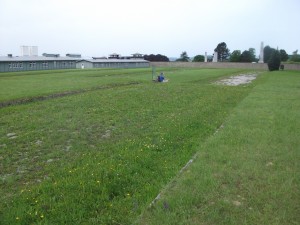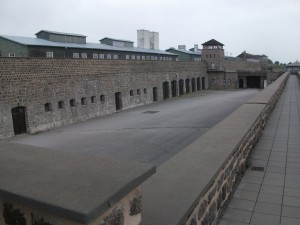
Mathausen concentration camp, near the holiday town of the same name and not far from Linz, Hitler’s home town, was Austria’s main forced labour camp during World War ll. About 50 subcamps dotted the small country. Did residents really not know what was going on? Will and I wondered as we toured the Mathausen camp remains during our trip to Austria this spring. We spent four hours on the site and didn’t see or hear it all.
The wall that used to be topped with electrified barbed wire still stands.
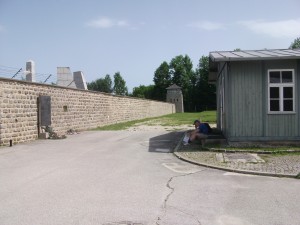
Two barracks line the main courtyard, the remainder having been torn down. We saw dormitories where inmates slept 2-4 to a bunk, disinfection showers, cermatoria, gas chambers and corners where disobedient inmates were shot. The audio guide described the daily life enhanced with survivors’ memories about such matters as camp hierarchy and humiliation tactics guards used to beat sprirts down. What kept inmates going and, in some cases, led them to toe the line was a hope for personal survival.
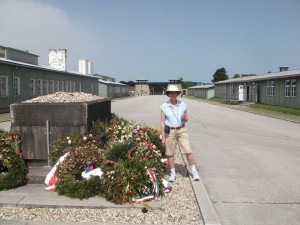
The site is part monument. Visitors leave wreathes and post documents on memorial walls. There’s a hall of victims’ names. Outside the camp’s front gate, countries have erected statues commemorating their deceased citizens. Inmates were sent from all over Europe, although the largest number, and lowest on the hierarchy, were Russians.
From the statues, we walked to a ledge overlooking the stone quarry, where inmates were led out to work every day. Numerous emaciated men dropped dead while lugging rocks up the quarry’s 186 steps. Sometimes, for fun, guards lined up four or five of these work slaves on a ledge and ordered them to push the person in front of them off.
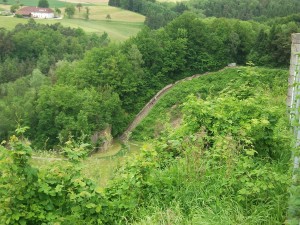
It’s bizarre to realize this closed world existed, where abhorrent behaviour was accepted as normal.
When the US army liberated the camp, some soldiers filmed the scenes they found. Skeletal figures gaped at us blankly from the movie in the site auditorium. The film included interviews with residents of the nearby town. A pleasant-looking man talked of making daily supply deliveries to the camp. He was horrified by what he saw, but didn’t do anything. Townspeople of the time complained about the stench coming from the camp.
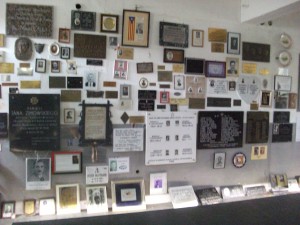
Inmates in the camp prison were treated worst, so badly they lost all hope. With nothing to lose, a group of Russian prisoners organized an escape. They climbed on each others’ backs so the top ones could make it over the electric barbs. For the ones on the bottom this was a suicide mission. They knew they would be killed when the guards found out.
In the film, a Russian escapee who ultimately made it to safety spoke of running from the camp and reaching a farmhouse, where he tried to explain to the owner who he was. The woman told him, “never mind, it doesn’t matter.” She hid him in the barn.
A woman interviewed recalled her mother hiding escapees due to her deep, religious conviction. Did she realize she and her children would probably be shot if the Nazis discovered what she’d done? I’d like to think, in her situation, I would do the right thing. But would I have risked my own children?
